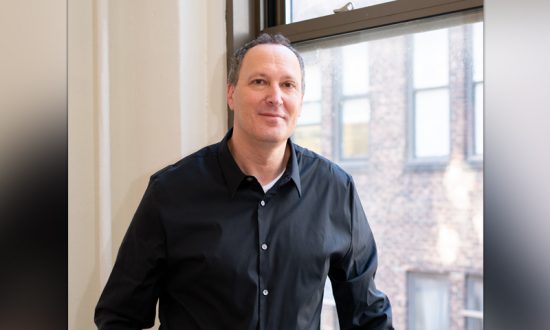Marc is a visionary and began the ChekMarc journey with a vision for a free, positive and uplifting community where people could connect and drive change.Prior to founding ChekMarc, Marc was a Partner at Deloitte where he held several executive roles, including P&L responsibility for a large business, Chief Strategy and Transformation Officer for one of the four business areas of Deloitte, and was a member of one the firm’s Board subcommittees. Over the course of his career at Deloitte and before, Marc has a track record of leading, growing and transforming businesses.
The internet and social media have created a proliferation of communication between people that has become instant, free from barriers of geography and irrespective of culture, age, education and familiarity. It has empowered people to come together and formdigital communities that are positive, beneficial, and meaningful. Sometimes these communities have reflected these attributes, though they have also enabled the opposite to happen.
Digital communities create positivity across the globe
The online communities can unite members from different walks of lifewho share common goals and interests. These shared interests and goals allow people to form a sense of connectivity and belonging, and can be quite useful in helping people learn from one another. There are a multitude of examples of these communities where people connect, engage to share information, and learn from others. Some people actively participate and others are more passive and learn by observing from others.These communities are often filled with information, educational content, videos, bite-sized entertainment clips, etc. They facilitate learning with a speed and ease in a way not enabled before.
In addition to creating an environment for learning, these digital communities help foster meaningful relationships between people. It creates opportunities for people to strengthen existing relationships or build new ones. It facilitates interactions that decades ago would never have been made. It allows people to find others who share common interests and form communities around these interests and in doing so, increases a sense of belonging, connectivity and togetherness. This of course, is the positive view of what digital communities enable.
The positive aspects of these digital communities have been valuable amidst the Covid global pandemic. Online communications and communities have surged.Social networking enabled by these online communities has provided some refuge hope during the lock downs that have existed. They have been invaluable in keeping people connected at a time when most needed. Instead of people randomly surfing the web for information, they have been able to interact in meaningful and productive conversations. They have connected people around the world and for many, have been a fundamental to one’s resilience and health during the most challenging of times.
Digital communities: The dark side
There are always two sides to a coin and the other side of digital communities is not nearly as positive. There are communities that form to engage in activities not beneficial to the world. There are communities that are well intended but fail to adhere to core tenets of respect for all, and therefore become places where people get attacked, disrespected and insulted. There are communities where misinformation is shared and communities become weaponized for ill intent. There are communities where people are misled, misinformed, and unsupported. Simply put, there are communities for good, communities for bad, and communities in between.
It is too soon to know how it all will evolve over time but it is likely that the positive and negative will co-exist in digital communities much like they do in non-digital interactions. The question becomes not whether all varieties will exist, but how-to or whether-to regulate the interactions improve the outcomes. This question is being hotly debated right now in many parts of the globe. The answer is not so simple.
Bottom line
Digital communities can be tremendously positive experiences for people. They can and are enriching individuals and societies. The power of them is endless. The good in them can be limitless. They can also create negative energy and be destructive. They can damage individuals and damage society. This should be of no surprise. Much that is good in the world eventually gets misused. Where is the responsibility for managing this? What happens if it is managed? What happens if it is not? These are not new questions for communities of people and they existed before the internet and before social media. They are however, now more important than ever before.






